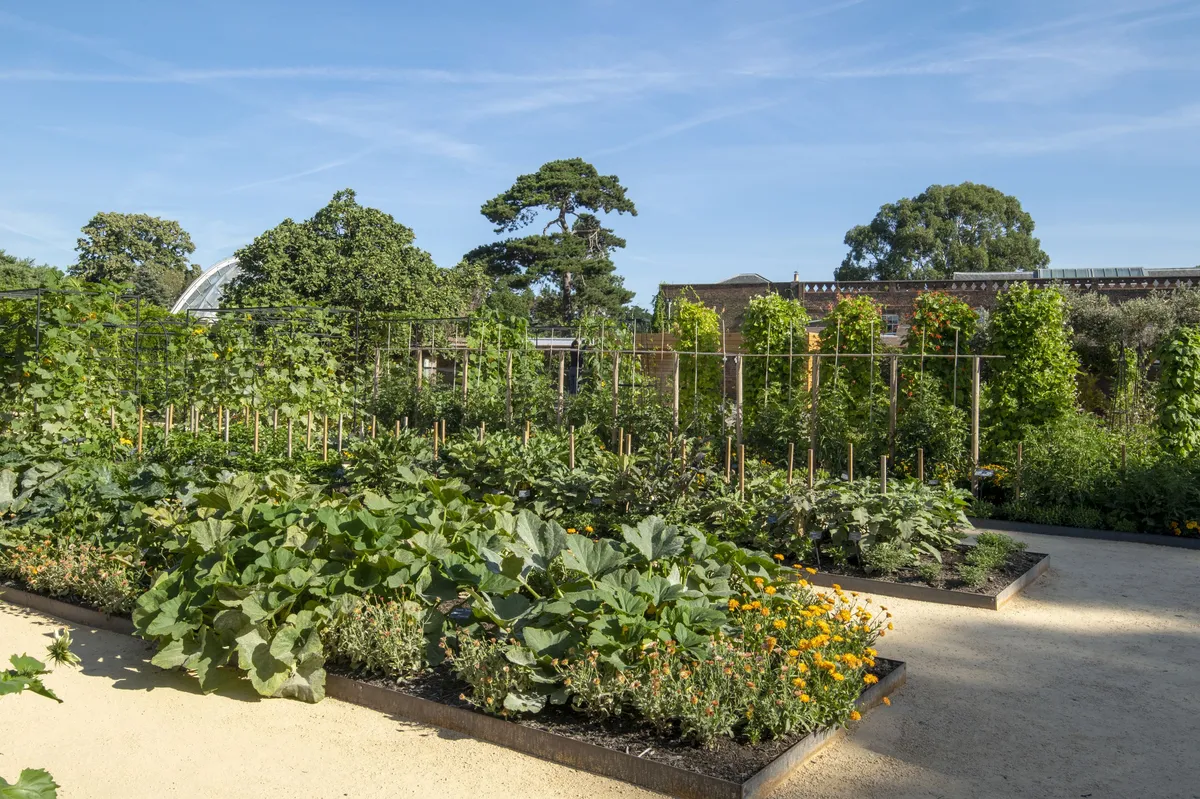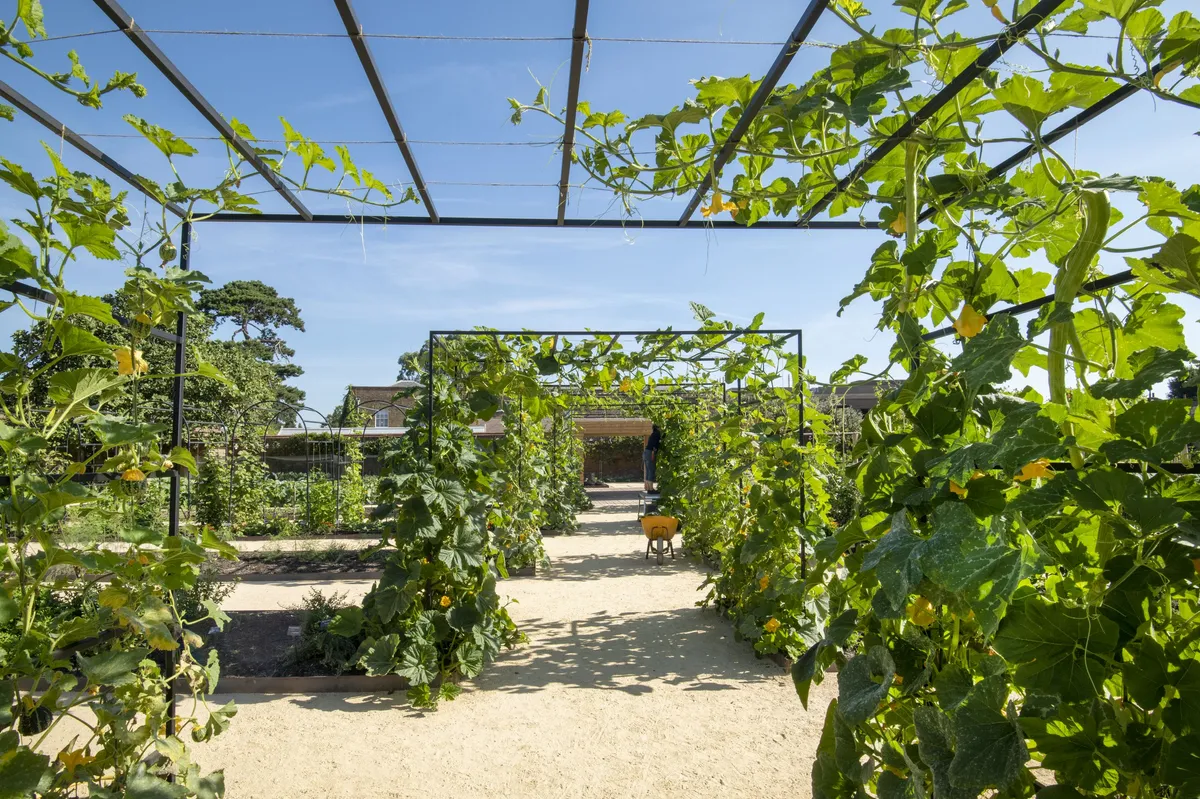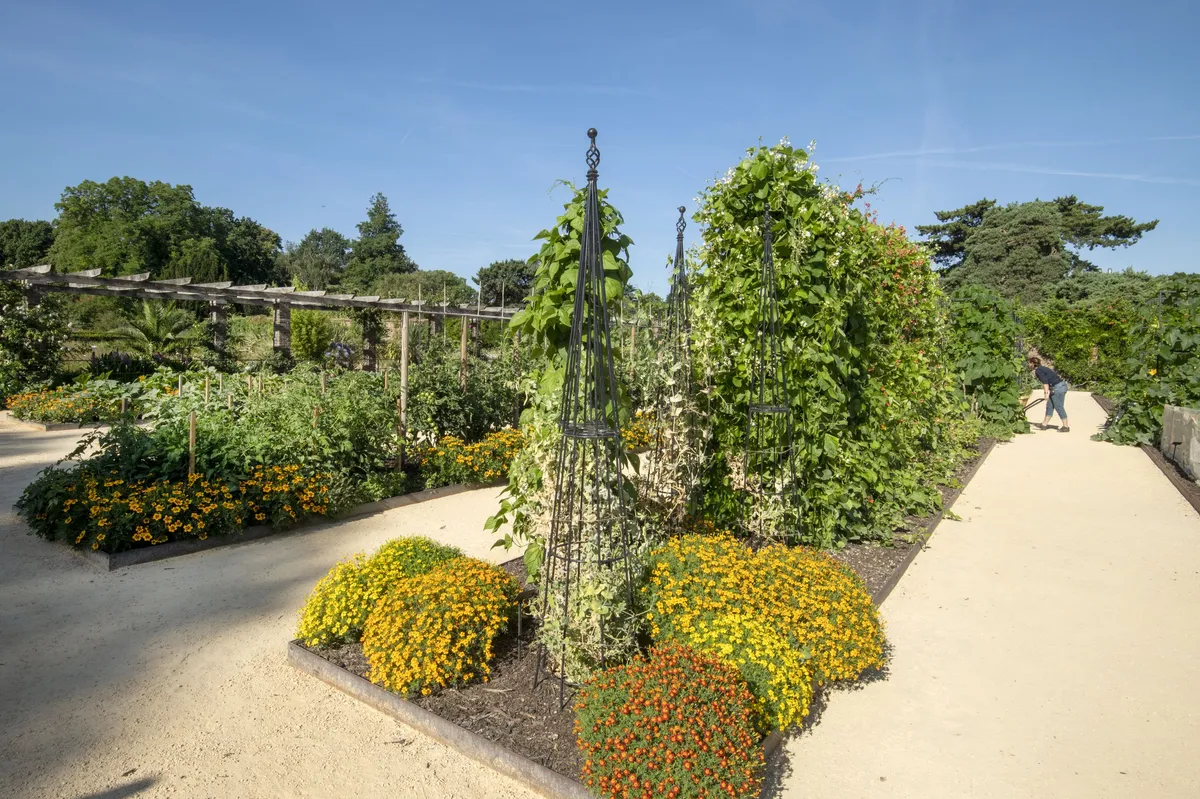Edible Science: Kew's Kitchen Garden re-opened to the public in July after a nine-month refurbishment project and is now preparing for its first harvest.
The new-look kitchen garden will explore sustainable production processes that aim to tackle biodiversity loss, food security, climate change and the cost of living crisis, all of which Kew sees as the defining issues of our time.
The hope is that the garden will inspire visitors to make easy changes at home that will have a big impact on the environment and on their lives.
Hélèna Dove, Head of the Kitchen Garden, says "The veggies you grow yourself always taste extra delicious, and here at Kew we're dedicated to researching and showcasing how you can get the very best out of your plot in a sustainable way."
From large polyculture beds that showcase a mix of veg and edible flowers grown together, to dedicated spaces for growing legumes and tomatoes, the kitchen garden demonstrates many different ways of growing. Their 'urban bed' focuses on dwarf varieties and plants that are well suited to smaller spaces, like city gardens.

Created on the site of the original Georgian kitchen garden, the area once supplied produce to King George III's estate. Now, it is one of the first kitchen gardens open to the public that has a sustainable focus.
The garden has implemented a no-dig approach to ensure good soil health. Each season, the team will add compost to the top of the beds which will suppress weeds, maintain good soil structure and support beneficial soil organisms. This will encourage biodiversity and crop growth and store the carbon that would be released from the soil through digging.
Hélèna says that you can already see the power of using a no-dig method in the garden: compaction of the soil is pretty much gone and it is teeming with life. "This isn't lazy gardening" she says, "it's efficient. The less we mess around with the soil the better".
Before the refurbishment, the pathways in the garden were grassy and would become waterlogged and inaccessible in winter. No-mow paths have been installed using Cedec, a porous material that will allow the kitchen garden to remain open in winter and for winter crops to be grown in the space for the first time in decades.

The entire garden is considered to be a living productive laboratory and showcases how understanding the wild species of cultivated crops can be the best way of informing growing practices. Within this wider project are a number of dedicated research areas, such as the Ethiopian bed which will examine crop efficiency and a large legume bed, both of which fit in with ongoing Kew research.

In a first for Kew Gardens, there will also be a dedicated growing space for fungi which will produce edible mushrooms and educate visitors about the beneficial interactions between plants and mycorrhizal fungi. Hélèna sees this as an exciting experiment and a chance to learn about a new type of growing. If successful, the mushroom growing zone will show people what they can do with a part of their garden that is under trees or in heavy shade; areas that people often struggle to make productive.
The refurbishment of the edible garden at Kew is a great example of what can be achieved on a large scale without the use of damaging pesticides and herbicides. It's the perfect place to gather inspiration for creating your own edible oasis, whether you've got an acre to play with or a balcony.
Visit the Kew Gardens website for more information.
